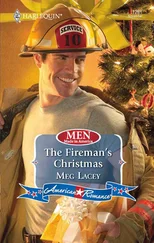But Boone has not exhausted the meaningfulness of the Playtex poster. He draws Helen’s attention to it once again. “To me this represents the spirit of our enterprise,” he says. “A commercial company finding a way to do something in a way that a government program could not. Although it’s also a reminder of how far we’ve come. Nobody can tell women anymore that this”—Boone nods at the prancing figure—“is all women can be. Or should be.”
“Oh, true,” says Helen, as if she hadn’t considered this. Men stayed enthusiastic about feminism if they believed it was their idea. And honestly, she hadn’t identified the woman in the advertisement as belonging to something connected with herself, or as a subject for indignation, historical or otherwise. You couldn’t get fussed about these things, or you’d find yourself out of the sandbox, complaining.
“This is Prime Space.” Boone taps the glass of the poster. “We’re not a government bureaucracy, and this gives us the freedom and lack of prejudice to accept the best ideas from wherever they come from. The world is not going to be changed in a Congressional committee. The best you can hope for is lowest common denominator consensus. We don’t have to ask permission from the taxpayers. We are the taxpayers. We are the job creators. And our missions have nothing to do with politics. They have to do with opportunities, with ideas, with manifesting dreams. Which do you think is the better route: trying to get everyone to agree that your dream is valid and important, hoping to inspire their support, or simply going ahead and doing what you love and saying, ‘Hey, who’s with me?’”
Boone has paused, and Helen, who had spent some time organizing the best answers to any questions she might be asked, riffles through her collection. It was often effective to mirror language, so Helen could go with “I like what you’re saying about manifesting dreams. The history of space exploration is the history of people going ahead, of saying, ‘This is what we will do.’”
“Let me ask you another question.” Boone moves to put his hands in his pockets, but there does not appear to be adequate room for them there, or his jeans are too starched. “What would you say is the most important component of a mission?”
Helen has this answer ready. “Clear objectives, thorough training, good and effective communication between crewmembers.” This was true, or true-ish. Most of being an astronaut was not going to space, so if given the opportunity, Helen would go to space for no specific purpose and with a crew of anesthetized yaks.
“We have a clear objective.” Boone smiles. “MarsNOW isn’t exactly ambiguous. As for training, we are about to begin a very intensive four-year program. The first portion of this is something we’re calling Eidolon.”
The significance of the name, if there is one, escapes Helen. She employs a PIG-inflected “mmhmm?” and tries not to look like a Rapunzel.
“A seventeen-month simulation of the mission,” he says. “This isn’t another isolation study. It’s taking the regular simulation training methods to a new level, one that matches the unique challenges of a Mars mission. We want to give ourselves, and our crew, a chance to work in the most realistic conditions possible. The training simulation imagines a six-and-a-half-month outbound trip, thirty days of Mars, and then nine months back. We’re condensing the Mars portion from the actual eighteen months to thirty days because we already have a lot of good data from other Mars analogue studies. What we’re concentrating on are the conditions of getting there and back. So, this brings me to the third thing you mentioned. The crew of a Mars mission will operate with more autonomy than any other in history. The right crew will define the success of this mission as much as the technology. For the first mission to Mars, the right crew is the technology.”
There are occupations where declamations of wild enthusiasm are wanted, and ones where they are not. You do not want to hear your brain surgeon shout, “This is my dream !” over your gurney as they wheel you into surgery. At NASA, the too obviously gung ho got weeded out. You didn’t go on and on about how you wanted to go to space so bad . You clobbered people over the head with your qualifications and then talked about luck when you were selected.
“That’s very well articulated,” Helen says. “In my experience, the most successful and happiest crews on the space station were the ones where everyone considered working well as a team member to be the first goal of their personal performance. The longer the mission, the more important this is, the more simple acts of consideration and helpfulness become, as you say, part of the technology of the mission. I’m fortunate to have had three chances to see just what people are capable of when they come together to work for something greater than themselves.”
Too much? Well, she is not sad anymore, or dehydrated.
“Do you think astronauts are born or made?” Boone asks.
Oh, for heaven’s sake. Well, several options. This could be the place for Helen to say things about how there was nothing special about her, people had granted her the opportunity to give her best. Since Boone had mentioned how far women had come, it might be nice to say that she stood on the shoulders of all the women before her, women who had made her generation the first that didn’t have to prove they were better than men, who could trust that they would be judged on their own merits, neither singled out for privilege nor ignored out of bias. Sally Ride’s refusal to be the sole astronaut of her crew awarded with a bouquet of roses had led to female astronauts being able to knit in space if they felt like it. But that sort of thing worked much better with speeches made to women.
Boone could also be asking a literal question on the subject of nature versus nurture. He’d titled his autobiography Me and My Quarks .
“Both,” says Helen.
“I know NASA wants you to stay on as Chief Astronaut,” Boone says. “And we all know where NASA’s nose is going to be pointed now, no matter how people feel about it. What I don’t know is how you feel about spending the rest of your career selecting which members of the United States military would be the best people to drill on the moon.”
Rescue me , thinks Helen.
“It won’t surprise you to know that we’ve been having a lot of discussions about you here,” Boone says.
“I hope they’ve been good discussions.” If something is being dangled in front of Helen now, she must not snatch.
“Very enthusiastic discussions.” Boone produces a black Sharpie from the back pocket of his jeans and begins striding silently across the lobby to the double doors that lead into the laboratories. For a wild second, Helen thinks that their meeting is over, and he is going to leave her under a Playtex poster. That she would have a lot of trouble handling this—she could handle it, but it would be tough—gives her a clue about the extent to which she’s been trying to game her expectations.
Still, she’s not going to trail after Boone. Helen takes a few steps into the center of the lobby and then holds her ground.
“I’m not unaware of the speculation in the community,” Boone says over his shoulder. “We’re four years away from our optimum launch window. It’s when we’ve said it would happen. So who’s going to go?”
Boone draws two columns of three horizontal lines directly on the wall behind him.
Rescue me.
“Primary crew.” Boone taps the first column. “Backup crew.” He taps the second. “We’ve got a rocket capable of sending a crewed spacecraft to Mars, and a way to protect our crew’s health on the journey. We’ve got an Earth Return Vehicle sitting on the planet, along with a processing plant manufacturing fuel and water and oxygen from Martian resources. In six months, we launch a contingency ERV and begin the Eidolon training for the Primary crew. Four years from now we’re sending three people to Mars. What do you think? Want to go?” Boone holds out the Sharpie to Helen.
Читать дальше












